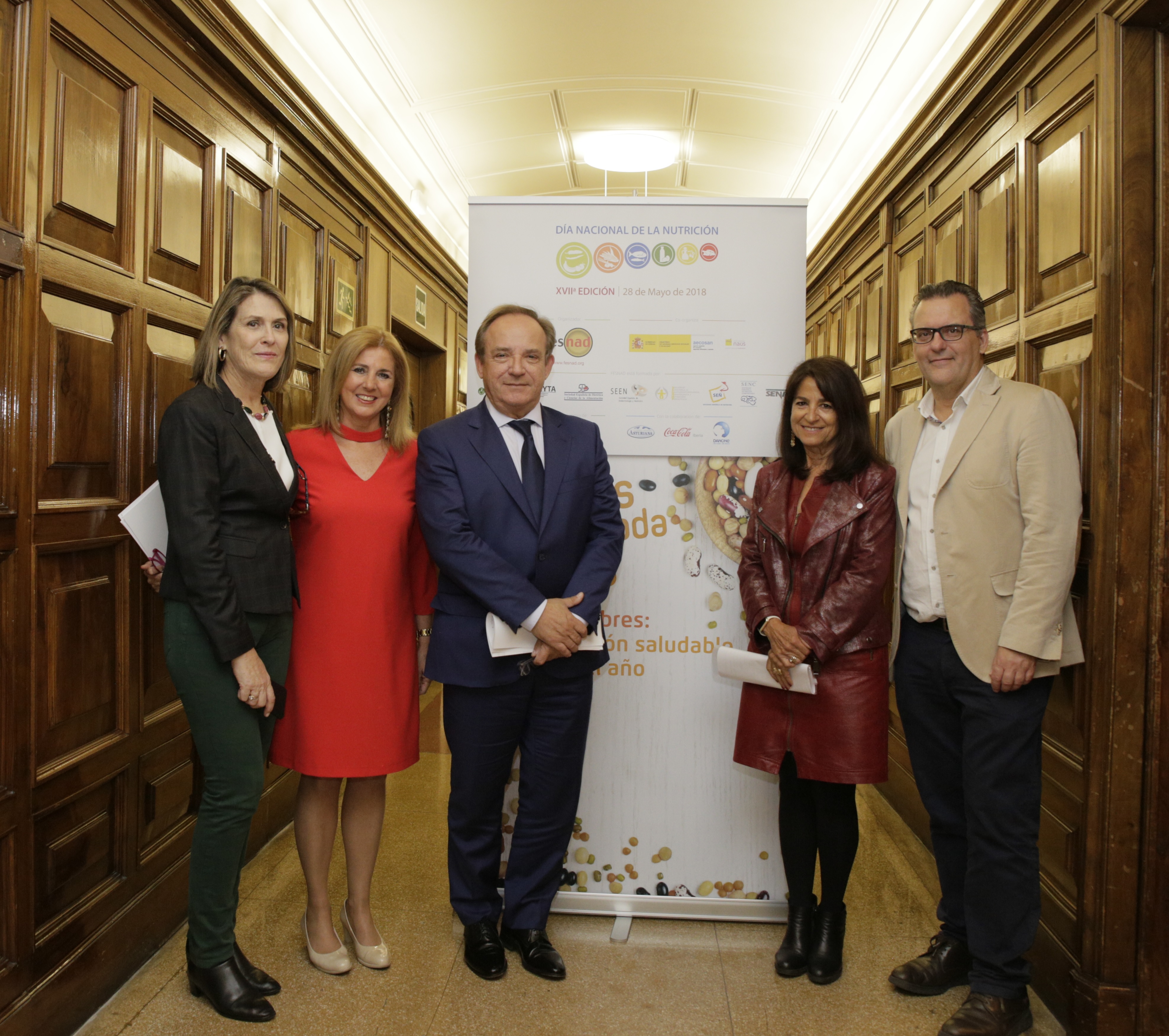National Nutrition Day 2018 recalls the importance of eating pulses all year round
Post: Spanish Agency for Consumer Affairs, Food Safety and Nutrition
Date: 28 mayo 2018
Section: Nutrición
- Spain has seen a 60% decline in the consumption of pulses, falling below the recommended daily quantities
- The current intake per inhabitant per year is 3.1 kg, which is broken down into 1.25 kg of chick peas, 0.93 kg of haricot beans and 0.93 kg of lentils, according to the figures from Mapama
- The purpose of National Nutrition Day is to make the population more aware of creating “Lifetime habits” around a healthy lifestyle
As on every 28 May, the Spanish Federation of Nutrition, Food and Dietetics Societies (FESNAD), in collaboration with the Spanish Agency for Consumer Affairs, Food Safety and Nutrition (AECOSAN) organised National Nutrition Day, on which they recalled the importance of maintaining lifetime habits. On this occasion, they also had the support of the Spanish Association of Leguminous Plants (AEL), as this year pulses were the main topic. They are a food of great nutritional interest and form part of the traditional Mediterranean diet. Thus, under the theme “Pulses: your healthy option all year round” the FESNAD aimed to inform the Spanish population of the importance of including this food in the weekly diet of both adults and children at all times of the year.
The consumption of pulses in Spain has declined 60% in recent decades, falling below the recommended quantities. Specifically, current intake per inhabitant per year is 3.1 kg (1.25 kg of chick peas, 0.93 kg of haricot beans and 0.93 kg of lentils), according to the latest figures of the Ministry of Agriculture, Fisheries and Food (MAPAMA). In spite of these figures, pulses are an essential part of the Mediterranean diet.
According to the president of the Spanish Federation of Nutrition, Food and Dietetics Societies, Mrs Ascensión Marcos, “initiatives such as National Nutrition Day aim to involve all those concerned in the promotion of a healthy lifestyle. These include public institutions, scientific societies belonging to FESNAD and all the health professionals who, in some way, offer the population guidelines to following a healthy diet”.
The Secretary General for Health and Consumer Affairs and President of the Spanish Agency for Consumer Affairs, Food Safety and Nutrition took part in the presentation of the ceremony which was held at the offices of AECOSAN. Javier Castrodeza highlighted the importance of collaboration with institutions such as FESNAD in the promotion of such relevant initiatives as for example National Nutrition Day. “It is vitally important that both FESNAD and all its professionals, and the AECOSAN itself, generate information and awareness of the need for healthy habits, and more specifically, in 2018, make the population aware of the importance of eating pulses all year round. It is important that they are aware of the benefits of these food products as a healthy and easily accessible option. For this reason, the promotion of the frequent consumption of pulses must be an asset in our society. In this way we will contribute to eating correctly and following the guidelines of the Mediterranean Diet and improving our health”. The Executive Director of AECOSAN, Teresa Robledo, also took part in the presentation.
Pulses have a high protein content, making them one of the main sources of vegetable proteins. The amino acid content is complementary to that of cereals, resulting in a top quality combined protein. In addition, the absence of gluten makes them suitable for Coeliac patients.
In fact, experts from the FESNAD recommend the consumption of 3 portions of pulses per week as they are a rich source of dietary fibre, proteins and essential amino acids and are the perfect complement to cereals. In addition, they have a low content of fats and a low glycemic index.
Spain has ten high quality pulses of high nutritional quality and with unique organoleptic properties which can be used with a huge variety of cooking techniques including stews, soups, salads, side dishes, snacks or even desserts in the diets of the whole population, including vegetarians, diabetics and Coeliac patients.
Culinary possibilities
The best-known pulses are lentils, beans, chick peas and peas. These are all the basis of traditional Mediterranean cuisine. On National Nutrition Day, nutritionists and experts in the area work together to make sure that this popular custom is not lost. They recommend not only associating the use of pulses with winter stews but also with the numerous more innovative recipes which make this ingredient an ideal food, recommended at any time of year.
Activities all over Spain
National Nutrition Day includes activities in hospitals, schools, institutes, universities, research centres and shopping centres, all across Spain and includes conferences, information points, exhibitions, the delivery of informative material, etc.
As an example of one of the activities to take place, the Higher Council of Scientific Research (CSIC) has joined this National Nutrition Day with events at several research centres, and at their head offices and the students' hall of residence.
